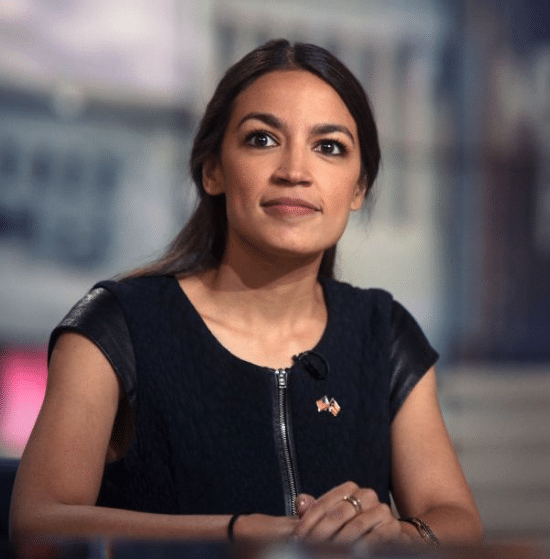During a Financial Services subcommittee hearing this week, freshman representative Alexandria Ocasio-Cortez spoke out about marijuana legalization. And in an exchange that went viral, AOC asked cannabis entrepreneur Corey Barnette if marijuana legalization is “compounding the racial wealth gap.”
“According to an industry trade publication, 73% of cannabis executives in Colorado and Washington are male, 81% are white,” said Ocasio-Cortez during the hearings. “In the state of Massachusetts, just 3.1% of marijuana businesses in the state were owned by minorities, and just 2.2% were owned by women. Is this industry representative of the communities that have historically [borne] the greatest brunt of injustice based on the prohibition of marijuana?”
“Absolutely not,” replied Barnette, who is one of the nation’s few African-American medical marijuana business owners.
“It does not look like any of the people who are reaping the profits of this are the people who were directly impacted,” Ocasio-Cortez concluded.
Many experts have expressed concern that legal weed is enriching a largely white pool of investors and entrepreneurs while marijuana prosecutions bled resources from disproportionately black and brown communities. While black and white Americans use marijuana at around the same rate, black people have been four times as likely as their white counterparts to be arrested for possession of the drug. “Legalization has barely made a dent in those disparities,” wrote former NAACP attorneys Vincent M. Southerland and Johanna B. Steinberg in The New York Times last year.
As of 2014 in Colorado, the marijuana arrest rate for black people was almost three times that of whites. In New York City, the marijuana arrest rate for black people in New York City was over four times that of whites; the Bronx has one of the country’s highest rates of marijuana arrests. Meanwhile, black people make up an estimated 1 percent of marijuana dispensary owners, owning less than three dozen of the 3,000 or so retail shops nationwide.
Some states that have legalized recreational or medical marijuana are tackling this issue head on. After Maryland’s first round of medical marijuana licenses did not include any companies owned by black people, the state passed a bill that will give preferences to minority license seekers. “For generations, African Americans have been disproportionately affected by marijuana laws,” said the bill’s sponsor, Cheryl D. Glenn. “To have this industry up and running without African Americans and other minorities involved as owners is shameful.” Missouri and Los Angeles have also considered using affirmative action to diversify their local cannabis industry, and while she was a member of Boston’s City Council, AOC’s fellow freshman lawmaker Ayanna Pressley advocated for similar efforts in Massachusetts.
Private organizations are also trying to address the disparity between who is harmed by marijuana prohibition and who profits from its legalization. In Oakland, the nonprofit Hood Incubator works to train black and brown residents of the rapidly gentrifying city to found legal marijuana companies.
AOC has herself been a vocal advocate for marijuana legalization, and made headlines earlier this week when she said she’d have no objections to a sitting president using marijuana. “We need to accept that there is nothing more inherently damaging about marijuana than say legal substances, like alcohol or anything else,” she told TMZ. “So, I’m glad that we’re moving towards a more just position as a party and that we’re moving to legalize marijuana but not just legalize marijuana but to really make up for the damages done by the war on drugs and the people who were unjustly incarcerated by the war on drugs.”
Credit: www.esquire.com

